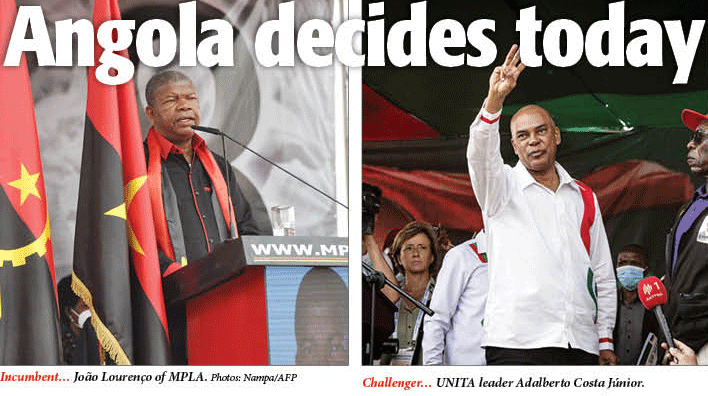The Angolan embassy in Namibia has registered more than 2 000 citizens who are eligible to vote for that country’s general elections today.
In an interview with New Era yesterday, Angola’s ambassador to Namibia Jovelina Imperial confirmed these include more than 1 000 Angolans residing in Windhoek, while just over 800 citizens live in Rundu and 300 are based in Oshakati.
She said all is set for the election day, and delegates are ready at the designated polling stations in Windhoek, Oshakati and
Rundu.
“We are going to have three polling stations. Everything is prepared for tomorrow (today) so that Angolan citizens exercise their right to vote,” she said yesterday.
Although there are an estimated 100 000 Angolan nationals in Namibia, the embassy only has a record of around 60 000 citizens.
Polling stations will be open from 07h00 and closes at 17h00 to allow citizens to exercise their rights to vote.
“Everyone must vote in the area in which they registered. Those who live in the Khomas region and have registered in Windhoek will do so here at the embassy of Angola. For the other posts, Angolans should go to the consulates in Oshakati and Rundu. I would like to stress that everyone should vote where they are registered,” Imperial said.
Unfortunately, the many Angolans living here do not have national documents; therefore, they will be left out of the election process.
Imperial noted the only document eligible for one to vote is the national identification card.
“And it is on the basis of this issue that Angolans of electoral age have been registered. Those who did not register because they did not have the documents will not be able to vote. We have various services to document our citizens here in Namibia, such as the late birth registration service and the identity card,” she said.
Millions of Angolans will vote today in polls expected to be the most competitive since the country’s first multiparty vote in 1992.
However, electoral fraud is a concern among voters.
A youthful and largely poor electorate will decide whether to continue with the liberation movement that has ruled since independence or embrace change with the opposition led by a charismatic coalition-builder.
Young people aged 10-24 make up 33% of the population, according to UN data.
Eight political parties are standing, but the real contest is between the ruling People’s Movement for the Liberation of Angola (MPLA) and its long-standing rival and former rebel movement, the National Union for the Total Independence of Angola (UNITA) under Adalberto Costa Júnior.
Stakes are high for MPLA – now led by president João Lourenço, who was first elected in 2017 and is seeking a second term.
Despite the oil wealth that benefited the former president, late Jose Eduardo dos Santos and his family, many of Angola’s 33 million people live in poverty and seek change.
Namibia’s international relations minister Netumbo Nandi-Ndaitwah is the head of the Southern African Development Community (SADC) Electoral Observer Mission (SEOM) to oversee the general elections.
The SEOM will observe the elections based on the adopted practice that supports member states in ensuring regular and credible elections, namely the three-tier electoral observation approach that involves pre-election assessments, assessments during elections and post–elections assessments.
Nandi-Ndaitwah noted the SEOM comprises 52 personnel, drawn from 11 SADC member states, namely: Botswana, Democratic Republic of Congo, Eswatini, Lesotho, Malawi, Mozambique, Namibia, South Africa, United Republic of Tanzania, Zambia and Zimbabwe.
The observers will be deployed across 12 provinces of Angola.
She highlighted the SADC electoral observation mission will assess the conduct of the elections against a set of central principles stipulated in the revised SADC principles and guidelines governing democratic elections (2021).
These include, among others, full participation of the citizens in the democratic and development processes, measures to prevent corruption, bribery, favouritism, political violence, intimidation and intolerance.
The other is equal opportunity for all political parties to access the state media as well as access to information by all citizens and acceptance of, and respect for, the election results by all political parties.
The head of mission also commended the people of Angola for the calm and peaceful environment, which is a sign of guaranteeing a peaceful election.
– Additional reporting by Nampa/AFP


